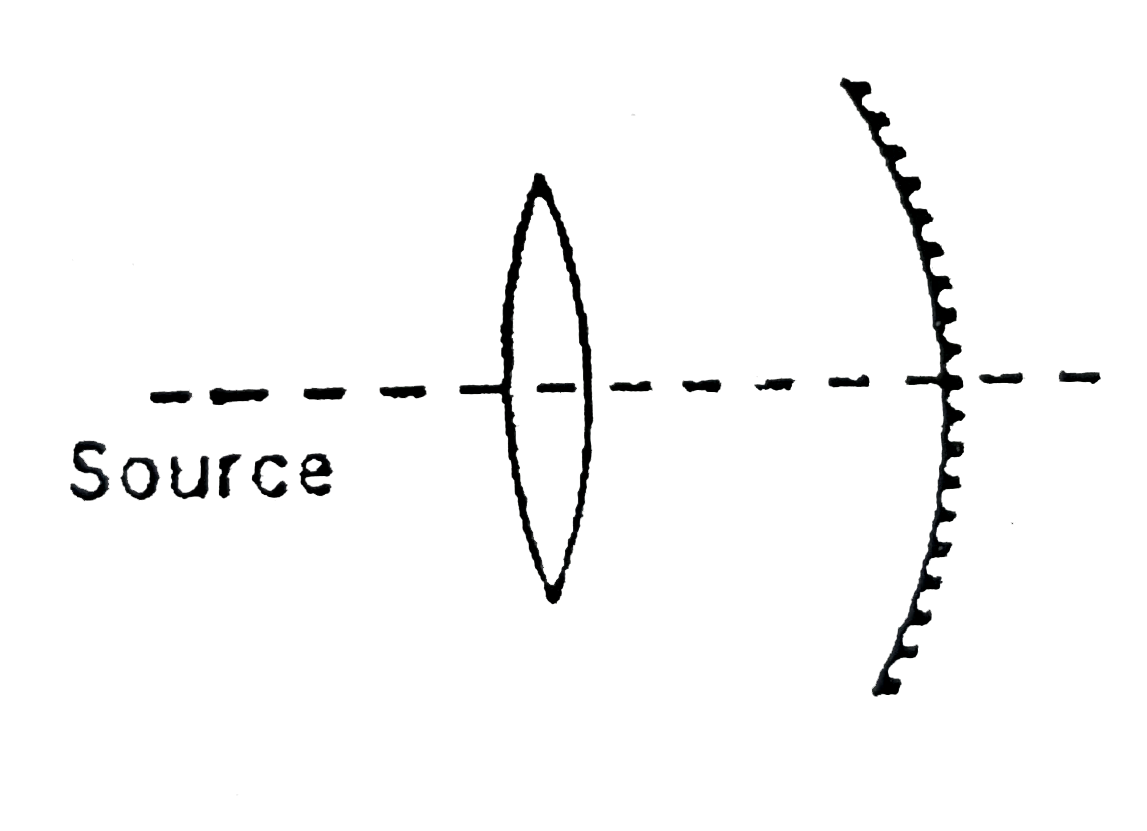A lens if placed between a source of light and a wall. It forms images of areaA1 and A2 on the wall for its two different positions. The area of the source or light is
(A1+A2)1/2
[1A1+1A2]−1
√A1A2
[√A1+√A2]2
The correct Answer is:C
This is an extension of d=√d1d2 for displacement method A=√A1A2.
Topper's Solved these Questions
- BOOK - MARVEL PUBLICATIONCHAPTER - INTERFERENCE AND DIFFRACTIONEXERCISE - TEST YOUR GRASP20videos
INTERFERENCE AND DIFFRACTION
- BOOK - MARVEL PUBLICATIONCHAPTER - GRAVITATION EXERCISE - TEST YOUR GRASP -220videos
GRAVITATION
- BOOK - MARVEL PUBLICATIONCHAPTER - KINETIC THEORY OF GASES ,THERMODYNAMICS AND RADIATIONEXERCISE - TEST YOUR GRASP - 930videos
KINETIC THEORY OF GASES ,THERMODYNAMICS AND RADIATION
Similar Questions
A lens is placed between a source of light and screen. It forms real image on screen for two different positions. If height of one image is 20 cm and the other is 80 cm, then the height of source of light (in cm) is_____.
View SolutionList out the difference between a point source and an extended source of light.
View Solution
Knowledge Check
- Question 1 - Select One
A lens if placed between a source of light and a wall. It forms images of areaA1 and A2 on the wall for its two different positions. The area of the source or light is
A√A1A2BA1+A22CA1−A22D1A1+1A2 - Question 2 - Select One
A lens is placed between the source of light and a wall. It forms images of area A1 and A2 on the wall for its two displaced positions. The area of source of light is
AA1+A22B√(A1A2)C[1A1+1A2]D(√A1+√A22)2 - Question 3 - Select One
A screen is placed a distance 40 cm away from an illuminated object. A converging lens is palced between the source and the screen and it is attempted to form the image of the source on the screen. If no position could be found, the focal length of the lens
Amust be less than 10 cmBmust be greater than 20 cmCmust not be greater than 20 cmDmust not be less then 10 cm
List out the difference between a point source and an extended source of light.
View SolutionA source of light is located at a disatnce l=90cm from a screen. A thin converging lens provides the sharp image of the source when placed between the source of light and the screen at two positions. Determine the focal length o fthe lens if
(a) the distance between the two positions of the lens is Δl=30cm,
(b) the transverse diamensions of the image at one position o fthe lens are η=4.0 greater than those at the pther position.View SolutionA source of light and screen are separated by a distance of 50 cm. A sharp image of the source is produced by lens when placed at two positions between the source and the screen. If the distance of separations of the lens between the two positions is 20 cm, find the focal length of the lens.
View SolutionThe internal surface of the walls of a sphere is specular (i.e. reflecting). The radius of the sphere is R=36cm. A point source S is placed at a distance R/2 from the centre of the sphere and sends light to the remote part of the sphere. Where will the image of the source be after two successive reflection from the remote and then the nearest wall of the sphere ? How wil the position of the image change if the source sends light to the nearest wall first ? Consider paraxial rays.
View SolutionA bi-convex lens is placed between a light source and a concave mirror as shwon such that image of the light source coincides with itself. Then,
 View Solution
View Solution

